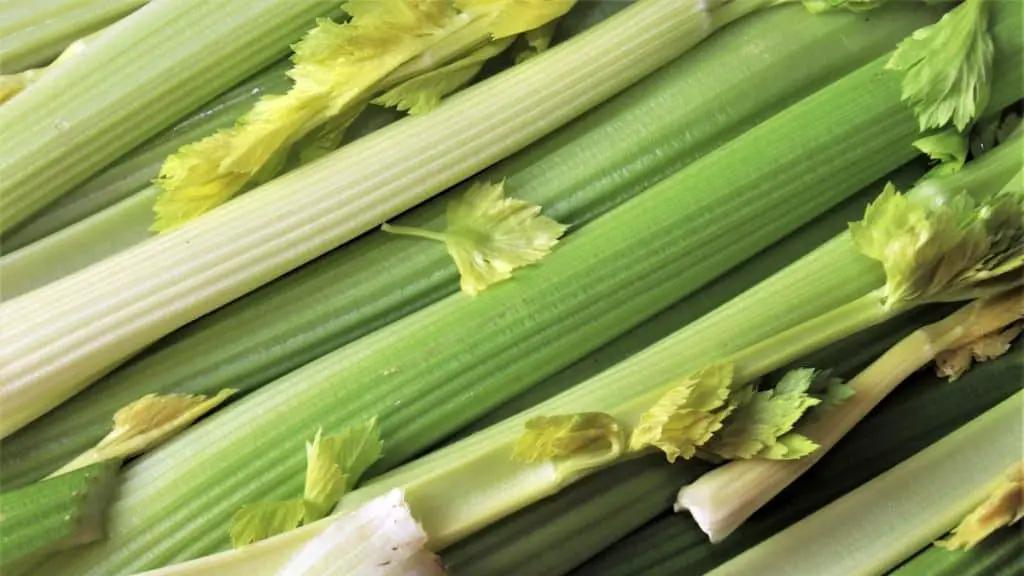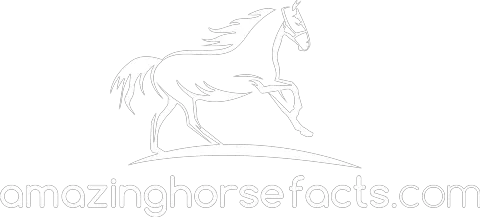Skip To Section
Can Horses Eat Celery?
Yes, not only can horses eat celery, but they should! – In moderation, of course. Celery is a great treat full of vitamins and nutrients. However, like some of our pickiest children, your horse may not enjoy it as much as others because of its slightly bitter taste.
Horses can get bored with their diets. This is understandable – who wants to eat dry grass all day, every day? Well, I suppose horses do, but they still get fed up with the same old stuff day after day.
Giving your horse treats can be an excellent way of keeping them engaged, supplementing their diet, and adding extra vitamins and nutrients – just make sure you’re still giving them a balanced diet.
But what foods are fit for your four-legged friend? Here we’ll explore what foods are safe, what foods aren’t, and what foods are, but should perhaps be kept on the shelf.

Horses have no issues digesting celery, and what’s more, it’s a healthy, inexpensive snack! Celery contains vitamins A, K, B2, B6, and manganese. It has high levels of potassium and, when given sparingly, is an excellent source of fiber.
Cut the celery into small pieces to make it easier for your horse to eat. Celery leaves and stalks are safe for horses to eat, so don’t leave anything out!
Can Horses With Laminitis Eat Celery?
In cases of horses recovering from laminitis, more commonly known as “founder,” celery is an appropriate treat as it is high in fiber, which is necessary for the healing process.
However, it’s important to note that horses with laminitis need strict diets determined by veterinarians as every case varies.
Can Miniature Horses Eat Celery?
Miniature horses, like regular horses, benefit from eating celery as an occasional snack. Because of their size, they don’t need as much. Consult your veterinarian if you are unsure of food portions.
What CAN’T Horses Eat?
Horses can’t vomit, so if they overeat or get poisoned, there isn’t much you can do. That’s why monitoring their diet and ensuring they have high-quality, safe, nutritious food is so vital.
Their stomachs are also sensitive to mold and toxins, so it’s important never to feed them fermentable materials such as lawn clippings.
Because horses are susceptible to colic, they need to be kept away from foods that cause intestinal gas. Cruciferous vegetables (like cabbage, brussels sprouts, kale, broccoli, etc.) contain a sugar called raffinose, which makes your horse gassy and bloated. Avoid these vegetables, as they often lead to colic.
Here Are Some Foods You Should Never Feed Your Horse:
- Chocolate – contains the chemical theobromine, which is poisonous to horses.
- Persimmons – Causes sticky masses (known as phytobezoar) that get lodged in the gastrointestinal system and lead to colic.
- Avocado – The skin, pit, and leaves of avocado plants are toxic to horses.
- Lawn clippings – Potentially contain toxic plants or mold and are easy to over-consume.
- Onions
- Tomatoes
- Potatoes – contain atropine which is toxic to horses.
- Cabbage
- Brocolli
- Kale
- Brussels sprouts
- Dog and cat food
- House plants
- Bread products – Bread products get doughy once ingested and cause blockages in the intestines, which leads to colic.
- Milk products – Horses can’t digest dairy, which is prominent in all milk products. Feeding your horse dairy will likely lead to stomach and digestive issues like diarrhea.
- Meat products – Horses are herbivores; they are adapted to eat plant materials to survive, not meat.
- Candy – Candy has very high amounts of sugar that are bad for your horse.
- Carbonated and alcoholic beverages
What Should Horses Eat In Moderation?
Horses don’t necessarily need treats (that’s why we call them treats). In fact, many horse owners don’t allow their horses treats at all. A horse’s diet should consist mainly of grass and good-quality hay.
However, if you do allow treats, they should be healthy, beneficial, and given in moderation.
These Foods Are OK For Horses To Eat But Should Be Given Sparingly:
- Corn – Good source of potassium, vitamin B6, and iron but is also very high in starch.
- Oranges – High in vitamin C and antioxidants and your horse can eat the seeds and skin, too! Oranges are high in sugar, though, so only feed occasionally.
- Raisins – Can cause digestive problems and discomfort from the high levels of natural sugar (but horses love them).
- Cherries – Good source of vitamins A and C but high in natural sugars.
- Garlic – Garlic contains anti-inflammatory and pain-relieving qualities. Still, it has a toxic element called N-propyl disulfide, which depletes the cells of chemicals that protect the horse’s blood cells from damage caused by oxidation.
What CAN Horses Eat?
Horses can safely enjoy many fruits and veggies as a treat. With most produce, the pits, skin, and seeds should be removed first. Remember to cut up all food into bite-sized pieces to prevent your horse from choking.
It’s important to be aware of pesticides used on any fruits or vegetables you feed your horse. Organic is always best. Make sure to check for mold and mildew and wash any produce before you feed it to your hooved pal.
Foods that horses can eat safely include:
- Celery
- Carrots
- Apples
- Peaches – Remove the pit first.
- Bananas – Peel and all!
- Pumpkin – Seeds too, but not the stem.
- Apricots – Remove the pit first.
- Pears
- Grapes
- Cucumbers
- Green beans
- Lettuce
- Radishes
- Peas
Conclusion
If you’re only here for an answer to the question “can horses eat celery,” the answer is “yes.” When given in moderation, celery is a great snack full of vitamins with high levels of potassium. It’s also a useful treat for horses that are foundering, as it provides extra fiber needed to recover.
Remember, horses are prone to colic, have a susceptible digestive system, and thus need a strict diet. Consult your veterinarian before making any changes to your horse’s feeding regimen.
